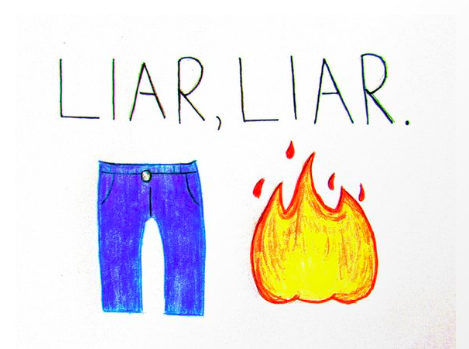Thread.
‘The Trans Experience of Surgery’
Okay, so this is a weird one. A 2-hour discussion held at UCL.
‘The Trans Experience of Surgery’
Okay, so this is a weird one. A 2-hour discussion held at UCL.
Blurb explains that it is not only ‘gender reassignment surgery’ but also ‘surgical care for any reason’ which is up for discussion.
The session was run by UCL’s Division of Surgery & Interventional Science (DSIS) staff.
The session was run by UCL’s Division of Surgery & Interventional Science (DSIS) staff.
Dr David Murphy is DSIS’s ‘LGBTQ+ Inclusion Lead’, and also Programme Lead for the Pain Management Master of Science degree.
Given the nerve damage and other long term complications arising from vagino- and phalloplasty procedures you'd expect a very nuanced discussion.
Given the nerve damage and other long term complications arising from vagino- and phalloplasty procedures you'd expect a very nuanced discussion.
So, would any of the complications* (necrosis, bits falling off and out, chronic UTIs, chronic pain, permanent sexual dysfunction, pubic hair growth in unwanted places, fistula formation, bladder & rectal damage) be mentioned?
*Not an exhaustive list but certainly exhausting
*Not an exhaustive list but certainly exhausting
FGS tweeps don’t be so stupes!
OF COURSE THEY WEREN’T!
What do you think this is?
Healthcare?
I mean, you can’t actually expect peeps to talk about the actual long term effects of surgery at a seminar called ‘the trans experience of surgery’. That would just be weird.
OF COURSE THEY WEREN’T!
What do you think this is?
Healthcare?
I mean, you can’t actually expect peeps to talk about the actual long term effects of surgery at a seminar called ‘the trans experience of surgery’. That would just be weird.
And certainly not when there are much BIGGER MORE IMPORTANT issues, like correct pronoun use.
You must all be insane.
Around 20 people in attendance, mainly DSIS staff, mostly over 40 years of age.
You must all be insane.
Around 20 people in attendance, mainly DSIS staff, mostly over 40 years of age.
Panel was TIF working for trans advocacy group, a TIM consultant anaesthetist, a Senior House Officer (and lesbian) and last but not least, Mr C Nim consultant urological surgeon, who performs phalloplasties.
Dr David Murphy -he/him (hereafter referred to as DIM - you’ll see why) set ground rules.
Don't say anything which challenges a person’s trans experience. No misgendering, no challenging language.
Instead, use gender neutral lang., be supportive of trans experience, blah blah
Don't say anything which challenges a person’s trans experience. No misgendering, no challenging language.
Instead, use gender neutral lang., be supportive of trans experience, blah blah
DIM also said that session *wasn’t* going to be about anything to do with ‘gender confirming surgery’ and would only look at the general experience a trans person faces in surgery.
First question DIM asked of panel: ‘How is trans exp. different to cis peoples’?
First question DIM asked of panel: ‘How is trans exp. different to cis peoples’?
TIM spoke first. Wanted to explain his ‘journey’.
*Didn’t* know he was trans aged 3-4, it was more like 10-11.
Life ‘unbearable’ until he came out aged 50+.
Admitted that other than his trans status, he’d had a privileged background.
*Didn’t* know he was trans aged 3-4, it was more like 10-11.
Life ‘unbearable’ until he came out aged 50+.
Admitted that other than his trans status, he’d had a privileged background.
It was only after he transitioned that pts began to reveal to him they were trans too. (Remember this is an anaesthetist, pts normally only see them directly before surgery.)
Immediately after transition the hospital he was working at offered him use of the female changing room.
Immediately after transition the hospital he was working at offered him use of the female changing room.
But TIM said ‘no’. Felt things were more complex than just suddenly taking access of a female changing room.
Had no problems at work, however friends have had more difficult times accessing healthcare, particularly on wards.
Had no problems at work, however friends have had more difficult times accessing healthcare, particularly on wards.
TIM said single sex wards don’t work for NB people. Now at his hospital they have single rooms for all pts.
A HIV health worker asked TIM were there GN changing rooms?
TIM responded in his affected demure voice that he wanted to be respectful of others’ wishes.
A HIV health worker asked TIM were there GN changing rooms?
TIM responded in his affected demure voice that he wanted to be respectful of others’ wishes.
DIM said that all future building renovations at UCL will now have GN facilities.
SHO talked about her minimal experience of training junior doctors (a junior herself) as if she was a veteran. Students were worried about getting things right around trans pts.
SHO talked about her minimal experience of training junior doctors (a junior herself) as if she was a veteran. Students were worried about getting things right around trans pts.
SHO said pts should be housed on how they ID.
All her students had reported to her that they'd heard people make terrible racist, homo/transphobic remarks (this turned out to be her theme).
TIM had a sad pained look on his face whole time.
(Which was understandable.)
All her students had reported to her that they'd heard people make terrible racist, homo/transphobic remarks (this turned out to be her theme).
TIM had a sad pained look on his face whole time.
(Which was understandable.)
A convo then began on how to ask difficult questions, and the example of asking pts if they used illicit drugs was used, as people wanted to skirt around the topic of even saying 'I ask people if they are trans'.
DIM said ‘People taking drugs isn’t a medical issue’ and that
DIM said ‘People taking drugs isn’t a medical issue’ and that
‘gender identity isn’t a medical issue’ and that there were lots of ‘non-standard ways of being’ and then began blathering on about ‘neuro-diversity’, a sure sign of grasping at straws.
No.1:
Taking illicit drugs ABSOLUTELY IS A MEDICAL ISSUE, YOU ABSOLUTE MOON UNIT.
No.1:
Taking illicit drugs ABSOLUTELY IS A MEDICAL ISSUE, YOU ABSOLUTE MOON UNIT.
Drug interactions can kill you stone dead. If you take MDMA, TELL YOUR DOCTOR!
No. 2:
Those with gender identities MIGHT BE TAKING EXOGENOUS HORMONES. Thicko.
No. 2:
Those with gender identities MIGHT BE TAKING EXOGENOUS HORMONES. Thicko.
Mr Nim stated that he found his ‘FTM’ pts mainly experience problems on the wards with nurses misgendering them. Often pts overheard people talking about them. These pts always asked for side rooms - which are normally reserved for very sick pts.
Mr Nim stated that ‘gender confirming’ sx is normally funded ‘locally’.
Hysterectomies are regularly performed for heavy bleeding.
‘MTF’ sx is done only in 4 places - private practices - but paid for by the NHS.
99% of ‘FTM’ sx is done in NHS.
Hysterectomies are regularly performed for heavy bleeding.
‘MTF’ sx is done only in 4 places - private practices - but paid for by the NHS.
99% of ‘FTM’ sx is done in NHS.
TIM butted in to make the point that asking if someone was pre-op is very offensive (people are too scared to even get pronouns wrong, so I doubt they are asking *that*) though said in a clinical context it was ok to ask pts their surgical history.
DIM moaned that NBs found themselves allocated to the wrong clinic (what would the right clinic be then?).
TIF announced she was NB-trans-masculine, they/he.
She disagreed with gendered language around hysterectomy and smears. She didn’t want her
TIF announced she was NB-trans-masculine, they/he.
She disagreed with gendered language around hysterectomy and smears. She didn’t want her
‘healthy body’ and said gendered language made her feel alienated.
TIF also said that not all trans people choose to have surgery and you can’t always tell by looking if someone is trans.
TIF also said that not all trans people choose to have surgery and you can’t always tell by looking if someone is trans.
At this point a very protracted and nauseating discussion about pronouns started. Probably lasted about 30 mins, something like that.
Not how pronouns might risk trans pt care by healthcare staff giving the wrong dose or the wrong blood to a pt. Of course.
Not how pronouns might risk trans pt care by healthcare staff giving the wrong dose or the wrong blood to a pt. Of course.
DIM said the payroll database at UCL didn’t include NB titles (i.e. Mx) but because it cost too much to change, staff had to go without this choice.
TIF said her pronoun was ‘your majesty’.
DIM said this stuff was v. imp, more imp. than, for example, mandatory fire training.
TIF said her pronoun was ‘your majesty’.
DIM said this stuff was v. imp, more imp. than, for example, mandatory fire training.
Yep, you heard it here. Pronoun awareness is more important than knowing how to get out of a burning building.
Someone piped up that the payroll system *should* be over-hauled, regardless of cost.
Someone piped up that the payroll system *should* be over-hauled, regardless of cost.
Two nurses from the newly formed Welsh Gender Clinic said unfortunately in Welsh ‘gender’ translated into the word ‘sex’, so it was the ‘Welsh Sex Clinic’. They didn’t know what to do about that.
They were v. busy fielding phone calls from other staff on pronoun queries.
They were v. busy fielding phone calls from other staff on pronoun queries.
TIM eluded to current ‘cultural battle’, but said that most people ‘want to be kind and get [pronouns] right’.
Also said often he dictated letter on pts (rare for anaesthetists to see pts in clinic btw) and he dictated pronouns but the typist then changed them all back again.
Also said often he dictated letter on pts (rare for anaesthetists to see pts in clinic btw) and he dictated pronouns but the typist then changed them all back again.
TIF complained that sometimes people asked ‘what do you want to be called?’.
This wasn’t good enough. Her name *is* her ‘ACTUAL NAME’ and not something she *wanted* to be called.
SHO said you could tell when misgendering was a genuine mistake, or if there was a barb behind it.
This wasn’t good enough. Her name *is* her ‘ACTUAL NAME’ and not something she *wanted* to be called.
SHO said you could tell when misgendering was a genuine mistake, or if there was a barb behind it.
Finally someone broke up the pronoun party by asking wasn’t it necessary to record the sex marker - whilst being clear he didn’t believe sex was a binary (no he wasn’t being sarcastic) - as the sexes have different clinical needs.
SHO said it was the responsibility of A&E to record this properly (except majority of surgical pts are elective).
Also, nice buck passing.
DIM said suggested a move away from talking about blood results, for example, in terms of male/female and instead refer to phenotypes?
Also, nice buck passing.
DIM said suggested a move away from talking about blood results, for example, in terms of male/female and instead refer to phenotypes?
TIM said this would be problematic for ‘cis’ majority but added helplessly ‘I don’t know what the answer is’ as if it was a v. complex problem.
I suspect he was keen to position himself as the only sane person in the room (achievement unlocked).
I suspect he was keen to position himself as the only sane person in the room (achievement unlocked).
Q: Are medical schools doing enough on training doctors on trans issues?
SHO claimed yet again that discrimination is rampant in NHS.
She also said that trans people also have the same problems as everyone else medically. For example, if a trans person is admitted to A&E
SHO claimed yet again that discrimination is rampant in NHS.
She also said that trans people also have the same problems as everyone else medically. For example, if a trans person is admitted to A&E
with a broken arm is their trans status relevant?
(Well, yes because bone thinning is a side effect of exogenous hormones.)
SHO was previously a City lawyer but had seen much worse prejudice working in the NHS.
(Well, yes because bone thinning is a side effect of exogenous hormones.)
SHO was previously a City lawyer but had seen much worse prejudice working in the NHS.
TIM said he had friends who were too scared to leave their homes because of the threat of violence on the streets.
(Where do they live? Mogadishu?)
TIF said she had experienced the worst transphobia from the gay community.
(Where do they live? Mogadishu?)
TIF said she had experienced the worst transphobia from the gay community.
DIM asked what specific health needs trans people have?
Someone literally answered ‘rainbow flags’.
Someone literally answered ‘rainbow flags’.
It was at that point I looked over at Mr Nim, fast asleep, hands folded over his belly.
DIM announced UCL are designing a new lanyard which has the correct pattern on it.
TIM said lots of his colleagues wear badges, but felt it was lip service. Again endeavouring to appear
DIM announced UCL are designing a new lanyard which has the correct pattern on it.
TIM said lots of his colleagues wear badges, but felt it was lip service. Again endeavouring to appear
even-handed he explained that there were other diversity issues aside from the LGBT (yeah there are tonne of people with diabetes for starters).
DIM said that students are more likely to choose to study at a Uni which was visibly pro-LGBT.
DIM said that students are more likely to choose to study at a Uni which was visibly pro-LGBT.
A male clinician asked do trans people experience transphobia from other pts?
TIM said it depends which ward they go on.
Said clinician responded it was really sad that there was opposition to trans people accessing the ward they wanted and that it was ‘like the 60s’.
TIM said it depends which ward they go on.
Said clinician responded it was really sad that there was opposition to trans people accessing the ward they wanted and that it was ‘like the 60s’.
TIM sighed and patiently explained that it was a very fraught discussion, which he characterised as a ‘shouting’ match.
He felt that decisions had to be made on an individual basis, since some TW don’t pass (not himself obvs (which he didn’t btw)).
He felt that decisions had to be made on an individual basis, since some TW don’t pass (not himself obvs (which he didn’t btw)).
Dormouse Nim was still sleeping when DIM suddenly wrapped things up. And not a minute too soon either.
So there you go, Rainbow Flags are the new sticking plasters which can remedy all maladies.
So there you go, Rainbow Flags are the new sticking plasters which can remedy all maladies.
@threadreaderapp unroll

 Read on Twitter
Read on Twitter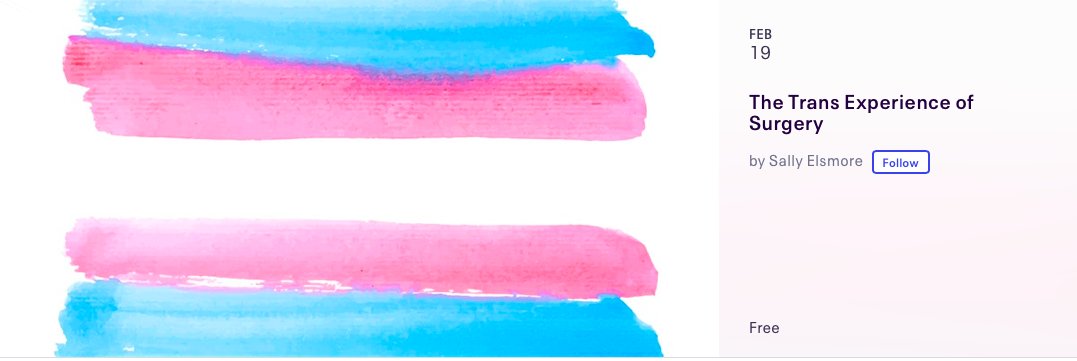
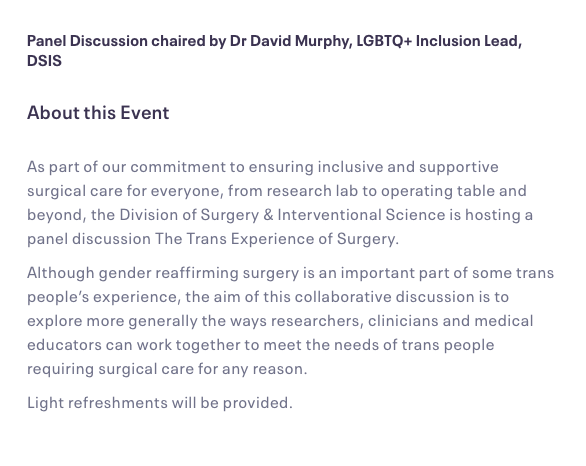
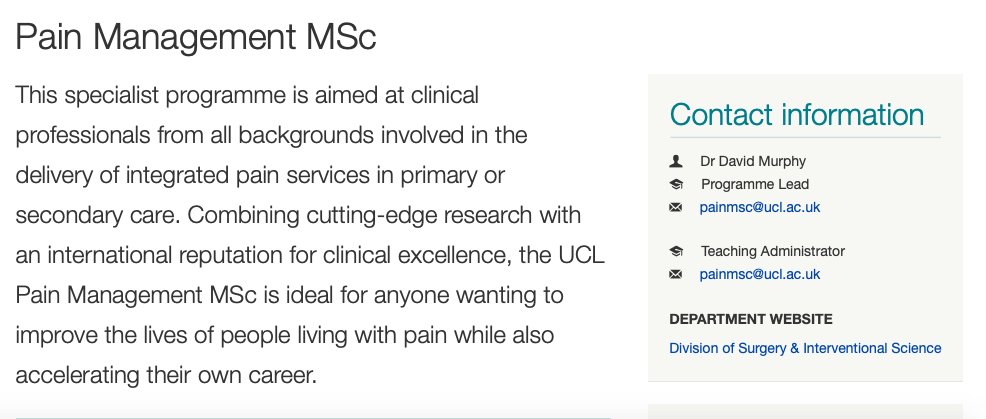
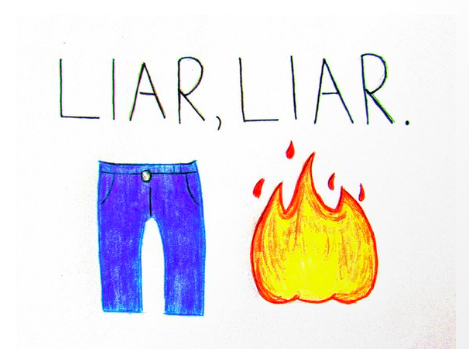
![TIM eluded to current ‘cultural battle’, but said that most people ‘want to be kind and get [pronouns] right’. Also said often he dictated letter on pts (rare for anaesthetists to see pts in clinic btw) and he dictated pronouns but the typist then changed them all back again. TIM eluded to current ‘cultural battle’, but said that most people ‘want to be kind and get [pronouns] right’. Also said often he dictated letter on pts (rare for anaesthetists to see pts in clinic btw) and he dictated pronouns but the typist then changed them all back again.](https://pbs.twimg.com/media/ERPdbFCXYAEe1a6.png)
